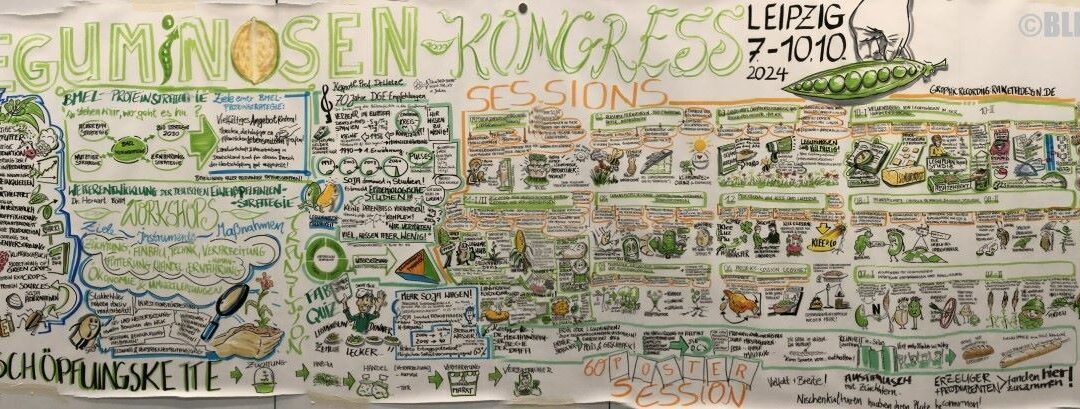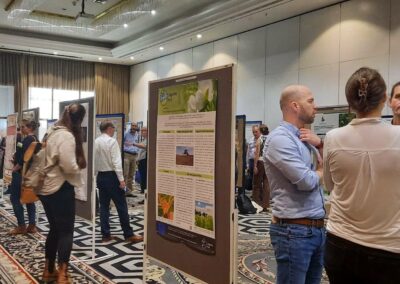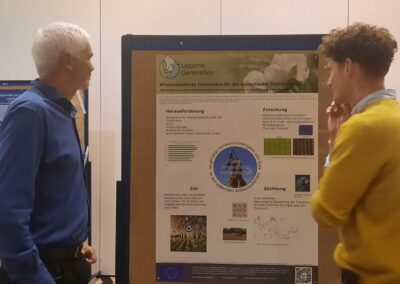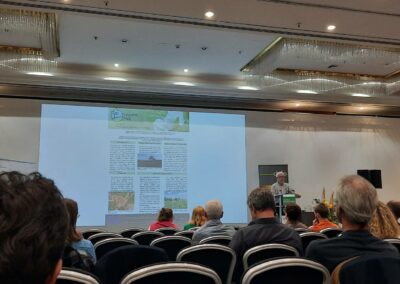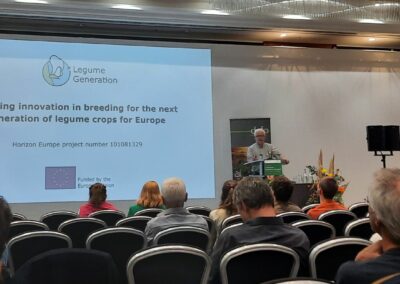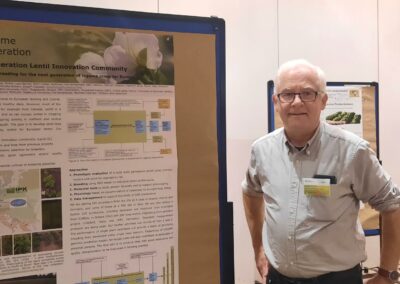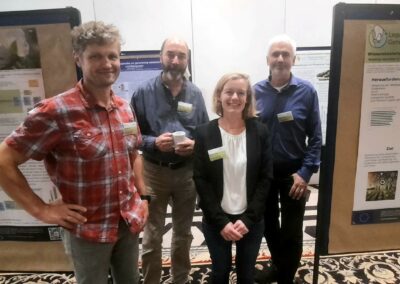In the congress, legumes, such as beans, peas, lupins and clover were discussed. How can research gaps of cultivated legumes such as beans, peas, lupins and clover be closed? How can necessary measures for implementation in practice be tested? These and other questions were addressed. Sessions focused amongst others on mixed cultivation with legumes that can achieve benefits for farms, biodiversity, the environment and animal and human nutrition. The expansion of legume cultivation will succeed if producing, utilizing and marketing companies, advisors and politicians work hand in hand, if consumers are informed and inspired, so that the economic viability of legume cultivation is ensured, according to the organisers Federal Office for Agriculture and Food (Bundesanstalt für Landwirtschaft und Ernährung) and the German Agricultural Research Alliance (Deutsche Agrarforschungsallianz). Research projects and industry players who provide the basis for this cooperation were invited to present their projects and results at the second Legume Congress.
Partners from the Legume Generation project used the opportunity to present their work at the second National Legumes Congress in Leipzig, Germany, from 7 to 10 October 2024. More than 200 participants could attend more than 130 contributions along the legume value chain – from breeding and cultivation to a wide range of utilisation options.
Donal Murphy-Bokern presented the project and gave an overview of the innovation communities and their ambitions, Fred Eickmeyer from ESKUSA and Volker Hahn from University of Hohenheim gave more insights into their work. The innovation communities for soybean, lupin, pea, lentil, phaseolus bean and clover were presented in posters. Donau Soja presented the Legume Hub as a poster.
The congress was organised by the Federal Office for Agriculture and Food (Bundesanstalt für Landwirtschaft und Ernährung) and the German Agricultural Research Alliance (Deutsche Agrarforschungsallianz).

